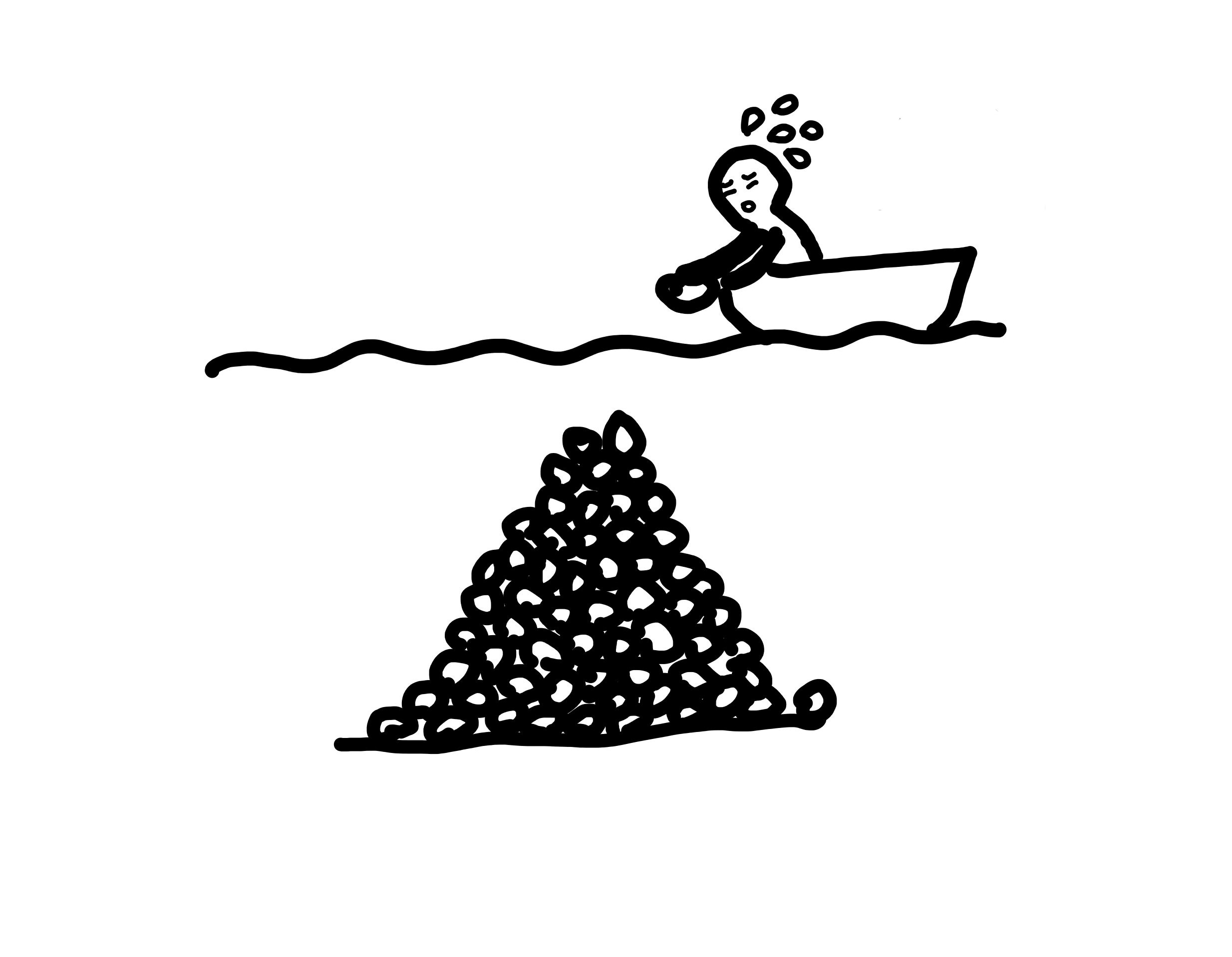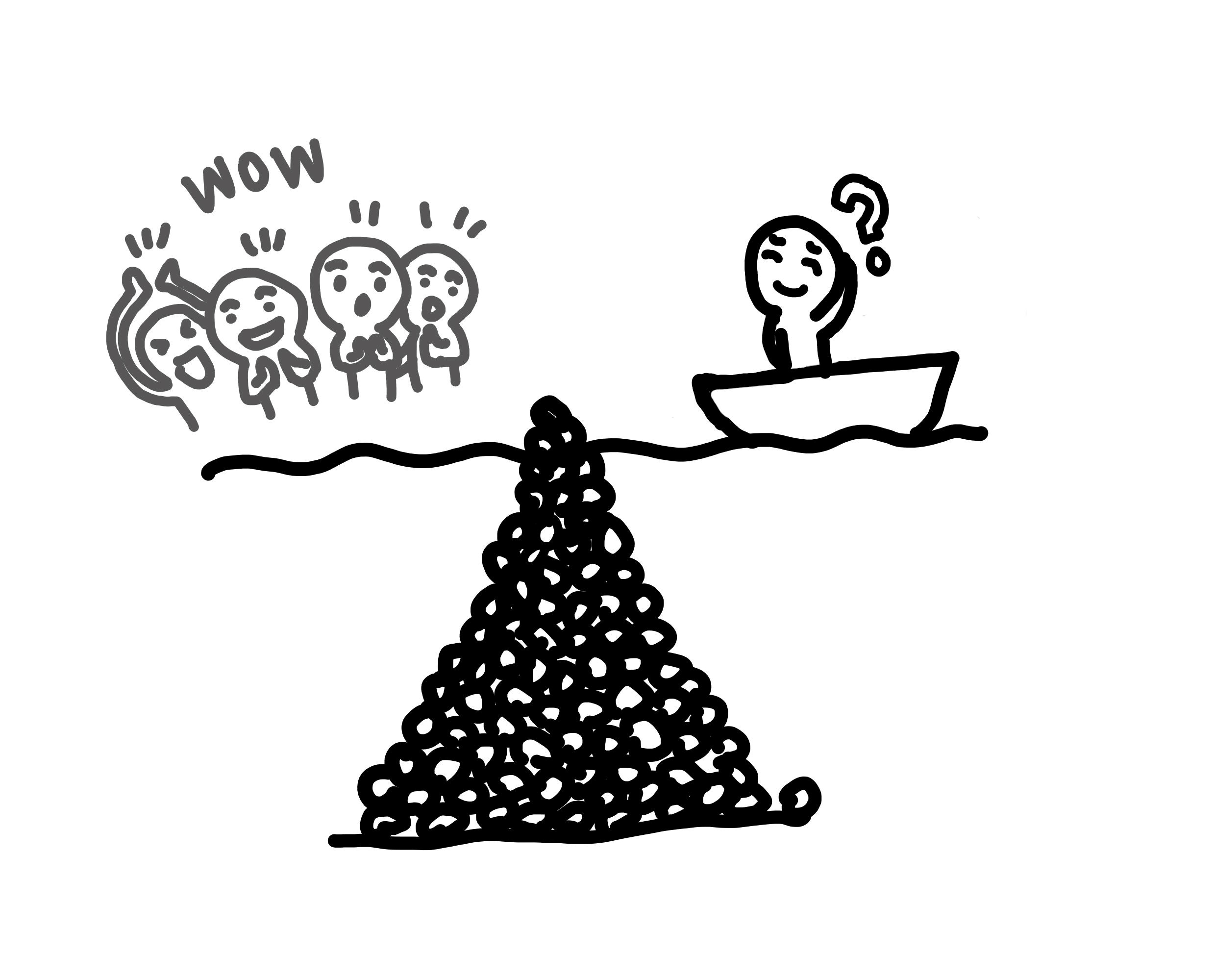Dealing with Academic Rejections
toc:
beginning: true
Acknowledgement: I am, by no means, a master of overcoming academic frustrations; actually, it’s quite the opposite. I have never successfully moved on from scathing rejections; instead, I have lived through and with them.🤟🏻
Invited to Career Talk
I received an invitation to speak at the Korea Scientist-Engineers Association’s annual conference, UKC 2023, in Dallas, Texas. The conference includes a panel for the younger generation, and I was appointed to speak at the “Career Talk” session. I decided to take a chance because they offered me a plane ticket and hotel accommodation (Of course, I wanted to have real tacos in Texas). However, as the event drew closer, I became unsure about which aspects of my experiences might be helpful to younger scientists and engineers.
After all, I am an ex-government employee and a 5-year PhD student. What could be interesting or inspiring about my journey? Government work is tough, law school is not easy, and pursuing interdisciplinary studies is not always enjoyable. What else can I share to make a meaningful impact on the audience?
I came to my ground rule. When I am not sure what to speak, I will speak about what currently occupies my mind. Maybe it’s not incredibly hitting the spot of audience’s interest, but at least, my talk will deliver my genuity about the topic because I can’t stop thinking about it.
Okay, Rejections!
As a 5-year PhD student, rejections have become a natural part of my day-to-day life. My proposals and write-ups have been rejected by numerous conferences, journals, fellowships, and internships. While well-meaning advice from others can offer comfort, sometimes it may not fully resonate with the emotions I experience. I couldn’t help but notice that rejections and self-doubt take a toll on my confidence, making me question my worth and abilities.
Below is the presentation I created for the talk.
Why Common Advice Does Not Help You
Below itemizes the common piece of advice for those who face rejections.
Common Advice
- “I believe in your talent and resilience."
- "Rejections are a natural part of the process; even the best writers face them."
- "Use this experience to grow and improve; it's an opportunity for learning and development."
- "Remember, every 'no' brings you closer to a 'yes.' Keep pushing forward."
- "I'm proud of you for putting your work out there; that takes courage and dedication."
- “This rejection is just a few editors’ perspective."
These comments are absolutely right! (If these thoughts strike a chord with you, I am glad, and you’re fine to skip the rest of this post). However, when one is at their lowest point, these tips may not fully connect with their current state of mind. It can be challenging to empathize with this advice when their thoughts are telling them the opposite.
What Our Brains Telling Us
- “I don't believe in my talent and resilience."
- "Rejections are a natural part of the process, but I have waited too long to see the results like any other good writers."
- "I have grown and improved a lot. I want to see the results! Maybe I am hopelessly incompetent."
- "I don't have energy anymore. I need a real 'yes' to keep pushing forward."
- "It took courage to put my work out there. That is why it's disappointing nobody recognizes my work's value. It speaks to how valueless my work is."
- “The rejection speaks to my inability to convince others of my work's contribution."
For the past four years and even now, these self-negating statements have echoed persistently in my mind. It almost feels like a desperate attempt to protect my sanity by setting low expectations to avoid disappointment. Perhaps I blamed my negative emotions on having overly high expectations for positive outcomes, leading me to deny my own capabilities. If I convince myself that I am not qualified enough for certain opportunities, then I shouldn’t be devastated by rejection, right? By evaluating my abilities with a mindset of 99% failure and 1% success, I might find genuine happiness in the rare achievements while being able to pick myself up more easily after facing rejections.
However, this self-negation hasn’t been entirely helpful, as it has instilled a fundamental doubt in my chosen career trajectory. I can’t help but question if I’m on the wrong path altogether. Should I consider a different career, one that aligns better with my abilities and aspirations? Constantly grappling with these uncertainties has led to a persistent state of anxiety, which has made me dislike my identity as a PhD student, as I’ve come to believe that academia might not be the right fit for me.
Advices Actually Helpful
At some point, as an another anxious and desperate move to protect my sanity, or from the belief in self-worth from the beneath of my heart, I did little thought experiment. Some of them somehow successfully lifted my spirit.
Advice 1
“I am incredibly sad because I strongly wanted it.”
When confronted with rejection, it’s natural to feel a profound sadness and question our own worth. However, in a moment of realization, I found a sense of solace in this poignant emotion. It dawned on me that the depth of my sadness was a reflection of just how much I truly desired the outcome I was seeking. Amidst the sea of rejections, I could refute the advice that questioned my abilities and potential, but I couldn’t deny the sheer intensity of my yearning for that desired result.
It wasn’t just any rejection; it was a profound testament to the depth of my care and dedication. This newfound perspective transformed my outlook, reminding me that the intensity of my emotions served as an affirmation of my unwavering passion and commitment. Instead of suppressing the pain, I embraced it as evidence of the dreams that meant so much to me.
Not everyone is fortunate enough to identify and pursue their dreams, and I count myself among the lucky few who can. Therefore, the profound sadness I experienced stands as a testament to my unyielding and genuine pursuit of that dream, deserving both celebration and gratitude.
Advice 2
“The sky is big enough to accommodate all of us.”
While a specific path may sometimes appear narrow and challenging, it is worth to remind that the bigger picture includes hundreds of thousands of paths, each leading to its own set of possibilities.
Imagine a stranger asking you, “Do you think the sky is big enough to accommodate everyone to flourish?” For me, the answer is a yes. I maintain a general sense of hope for the abundance of opportunities the future holds for everyone. Though I’m not an overly optimistic person and acknowledge that societal and systemic factors may create barriers and limitations that can impact individuals’ ability. However, I still possess a high-level belief in the potential of the human world. If a teenage neighbor were to share their dreams with me, I would wholeheartedly believe that they are achievable and would eagerly seek resources to support their aspirations. This optimism toward others’ possibilities has also been helpful for me in maintaining a long-term perspective on my own journey.
So, if I were to advise a young researcher struggling with academic frustrations 20 years from now, my response would be a resounding “no” to their pessimism. Instead, I would remain positive and encourage them to keep pursuing their goals, seeking feedback from peers and mentors along the way. I would assure them that with persistence and dedication, they will find a meaningful place in their field in the near future. And this high-level advice applies just as much to myself in the present as it would to that young researcher in the future.
This shift in focus, guided by the idea of the vast sky, enables me to let go of self-criticism and embrace the boundless possibilities that lie ahead. Visualization of this statement has proven to be remarkably powerful, allowing me to release the grip of self-doubt.
Advice 3
“Engaging in interdisciplinary studies is comparable to dropping a stone into the depths of water, leading to the formation of an intellectual island rising above the surface.”
Recently, a paper I had revised multiple times faced three consecutive rejections. Doubts about my capabilities as a researcher began to creep in, especially since the research had reached its conclusion in 2022. The confusion about whether to persist or move on intensified.
In those moments, my supportive PhD advisor, Tadayoshi Kohno, shared a valuable insight. He likened interdisciplinary research to throwing stones into water, explaining that it takes time to make an impact. While the water may initially swallow the stones, continued efforts will eventually create a profound impact like a majestic iceberg. The professor assured me that people might only notice the tip, not realizing the tremendous effort hidden beneath.



My advisor wrote this article on Medium about the island analogy about the general PhD experience, which I highly recommend.
This visualization experiment was remarkably helpful as it served to validate and acknowledge the worth of my rejected efforts. While some reviewers may not have recognized its value, I did, and I likened it to casting a stone into the water, contributing to the foundation of my island of knowledge. Thus, it holds great significance and is by no means meaningless. As my island emerges above the surface, this seemingly insignificant stone, once tagged with frustration, will prove to be an essential element of my approach, playing a crucial role in my academic journey.
Conclusion-Hang in There!
My journey as a PhD student has been filled with challenges, rejections, and moments of self-doubt. Yet, I’ve come to realize that these experiences, though painful, are not signs of failure, but rather stepping stones towards growth and learning. Throughout this process, I’ve embraced the sadness that accompanies rejection, understanding that it signifies the depth of my passion and dedication to my dreams.
To me, Engaging in thought experiments to challenge conventional advice has proven highly beneficial. This shift in perspective, moving from inward to outward, has been facilitated by the powerful metaphors of the vast sky and the emerging intellectual island. Through this new lens, I’ve been able to transcend the limitations of present challenges and embrace a broader vision for my academic journey. Much like dropping stones into water, my interdisciplinary research efforts may not always yield immediate results, but I firmly believe that they will lay the groundwork for a strong and resilient foundation, shaping the essence of my own island.
As I continue to navigate this path, I am grateful for the valuable advice and insights from my advisor and the unwavering support of those around me. I remain committed to pushing forward, knowing that every rejection and setback is a chance to emerge stronger and more resilient. With determination and an open mind, I look forward to the unknown adventures (and struggles) that await me in this academic journey.
Those of every successful scholar I know make clear that while the process of discovery is exciting and gratifying, anyone who devotes a life the narrow confines of scholarship will inevitably have to confront frustration, anger, confusion, and one or another form of self-doubt. —Julius Getman, The Company of Scholars: The Struggle for the Soul of Higher Education (1992)